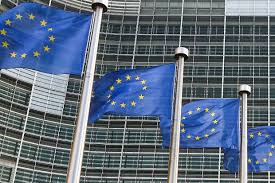By Andrew Warshaw
July 5 – In a ruling that will send alarm bells ringing across the Continent, seven Spanish clubs including Barcelona and Real Madrid have been ordered to repay millions of euros of unlawful subsidies after being found guilty of breaking EU state aid rules.
The European Commission ruled that preferential loans to the clubs and deals on tax and property constituted unlawful government help, breaking competition laws.
It said Barcelona, Real Madrid, Valencia, Athletic Bilbao, Atletico Osasuna, Elche and Hercules were granted state aid from Spanish authorities, giving them an unfair advantage over other clubs.
Following three separate investigations since 2013 undertaken by competitions commissioner Margrethe Vestager, the EC has now charged Spanish authorities to recoup between €50 million and €70 million worth of soft loans, tax breaks and property deals
Whether the ruling is binding retrospectively seems likely to form the basis of any appeal that might be launched. But the commission ruling stated: “State aid measures granted by Spain to seven professional football clubs advantaged them unfairly against other clubs, which is a breach of the EU rules on state aid.”
Valencia, Hercules and Elche were ordered to pay €20.4 million, €6.1 million and €3.7 million respectively. Real Madrid were ordered to pay €18.4 million following a land transfer between the club and the City of Madrid, which gave “unjustified advantage over other clubs”.
Real Madrid, Barcelona, Athletic Bilbao and Osasuna have also been mandated to pay back up to €5 million following changes in Spanish legislation on corporate taxation. “In Spain,” said the commission, “professional football clubs are considered as private companies for tax purposes however, these four clubs were treated as non-profit-making organisations which pay five per cent in tax on profits compared with corporations. The four clubs benefited from the lower tax rate for more than 20 years without objective justification.”
“Using taxpayers’ money to fund professional football clubs can create unfair competition,” said Vestager. “Professional football is a business with significant money involved and public money and must thus comply with the rules of fair competition which, in this case, the investigated subsidies did not meet.”
However, the ruling does raise questions over how far a government can support a football team. With many clubs operating in municipality owned stadia there are large numbers of overlaps between private and public enterprise. For example, the Premier League’s West Ham is moving to the £900 million+ Olympic Stadium in London that was completed for the 2012 Olympics and has been remodeled for football. West Ham are the only club that will play at the stadium and will pay just £15 million for refurbishment and £2 million in annual rent for a stadium that has increased the club’s crowd capacity by more than 25,000 in a more modern and commercial facility.
Similarly, where a country invests in stadia to host a major competition – like the current European Championships in France – and then supplies that stadium to the professional team, where is the line between providing a public-money driven competitive edge and a private investment drawn?
Contact the writer of this story at moc.l1714306979labto1714306979ofdlr1714306979owedi1714306979sni@w1714306979ahsra1714306979w.wer1714306979dna1714306979

